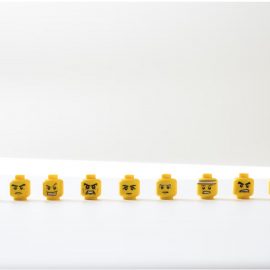
This is a free excerpt from one of Shortform’s Articles. We give you all the important information you need to know about current events and more.
Don't miss out on the whole story. Sign up for a free trial here .
Why is misinformation bad? What are the consequences of spreading bad information? How can you stop it?
Misinformation and disinformation are everywhere, leading to inaccurate beliefs and distorted worldviews. However, refuting these forms of false information can be extremely difficult.
Read on to learn why misinformation is not only bad, but at times dangerous, and how you can stop it from spreading.
Misinformation Is Bad, Sometimes Deadly
Misinformation and disinformation are rampant in modern society. Every day, people read, believe, and share misleading or outright false information. Because of all this misinformation, people develop inaccurate beliefs and distorted worldviews. This can lead to confusion, frustration, and even extreme actions on an individual level, and misguided, harmful policies on a societal level. Below, we’ll use an example to explain why misinformation is bad and can even have deadly consequences in society.
Misinformation During the Covid Pandemic
Many people—especially Americans—believed the misinformation that Covid vaccines are more dangerous than the disease itself. As a result, an estimated 234,000 Americans died when their lives might have been saved by taking the vaccine.
So, what’s the difference between misinformation and disinformation? Misinformation is simply inaccurate information, such as unfounded rumors or misinterpretations of facts. In contrast, disinformation is deliberately misleading information intended to manipulate people, such as hoaxes and propaganda.
This article will explain exactly why misinformation and disinformation are bad by exploring the general dangers of false information to individuals and society at large. We will then examine why it’s so hard to fight back against wrong information, and some possible strategies for doing so.
The Dangers of Bad Information
Disinformation and misinformation are bad because both often lead people to adopt mistaken or misguided beliefs. Those beliefs, in turn, affect their worldviews, including how they vote and how they act. In extreme cases, these forms of information can incite hatred, violence, and social unrest—or they can be used to stifle protests by making people believe that societal problems are less serious than they really are.
How to Stop Bad Information From Spreading
The obvious solution to wrong information would seem to be presenting accurate information to counter it. However, debunking wrong information is many times harder than spreading it, so a reactive approach isn’t very effective. In fact, it can even be counterproductive—refuting bad information often causes people to cling to their mistaken beliefs more strongly.
What Is Prebunking?
So, if debunking doesn’t work, what can be done? Prebunking—teaching people ahead of time how to recognize and reject common types of misinformation—may be a more effective solution. Prebunking is described as a vaccine for the mind; and, in fact, the process is remarkably similar to medical inoculation.
Prebunking involves exposing people to wrong information that raises doubts, prompting them to exercise their critical thinking skills (in an effort to prove the information wrong). The experience helps train them to recognize similar types of misinformation in the future.
Addressing the Link Between Beliefs and Identity
While prebunking is more effective than debunking incorrect information, the narrow focus on truth versus falsehood may be misguided. People who believe that fact-checking and prebunking will solve the misinformation crisis overlook the fact that beliefs, emotions, and identity are closely linked. In other words, misinformation doesn’t just affect what people think is true; it affects how people see themselves.
Because of that link between beliefs and identity, researchers have found that many people simply don’t want to be corrected. They seek out and cling to information—accurate or not—that confirms what they already believe, while rejecting information that challenges their beliefs. This is why, for example, people still insist that Covid vaccines are dangerous despite an abundance of evidence that they’re not. Clearly, just providing evidence hasn’t worked to overturn this mistaken belief; being opposed to the Covid vaccine has become part of people’s identities, and letting go of that belief feels like letting go of who they are.
There’s currently no clear answer to how we can change such deeply held convictions, but it is clear that policing the flow of information is not enough.

Want to fast-track your learning? With Shortform, you’ll gain insights you won't find anywhere else .
Here's what you’ll get when you sign up for Shortform :
- Complicated ideas explained in simple and concise ways
- Smart analysis that connects what you’re reading to other key concepts
- Writing with zero fluff because we know how important your time is






